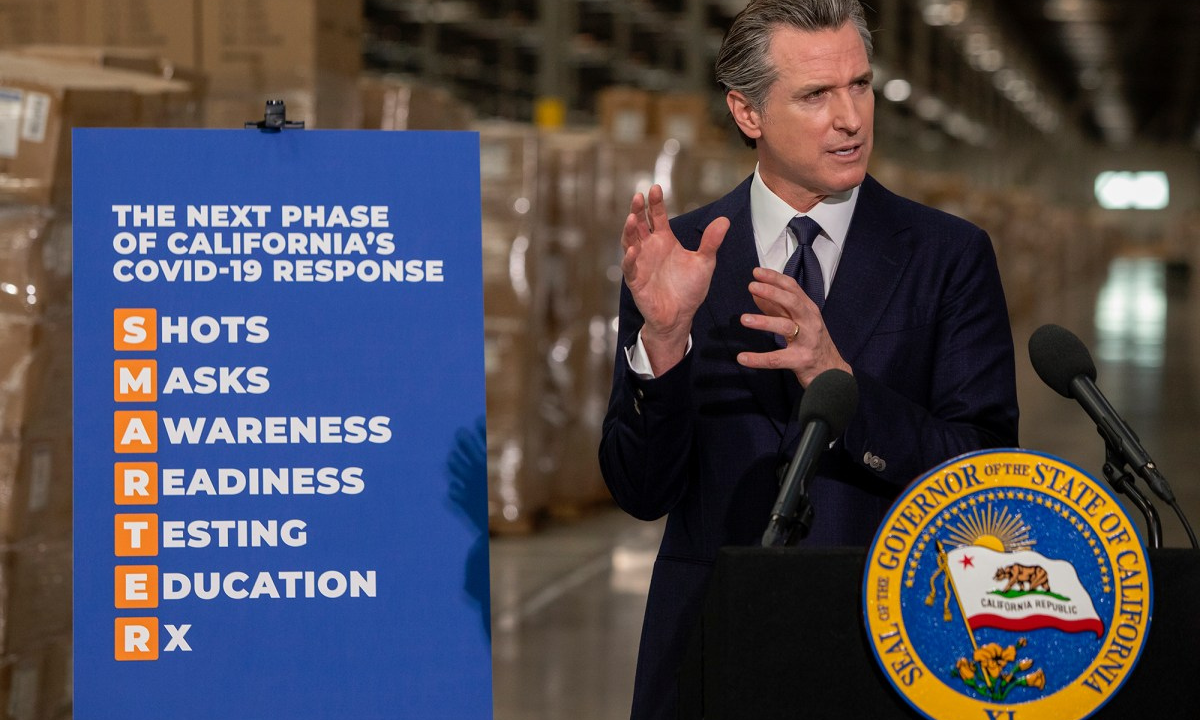Written by Bobbie Wylie
On Friday, California Governor Gavin Newsom ended 12 states of emergency designations but has left the state of emergency declaration for the COVID-19 pandemic in place.
These state of emergency declarations that ended Friday were lasting impacts of the last two governors and included those for heat waves, wildfires, an oil spill, and the civil unrest that came as a reaction to the death of George Floyd in 2020. However, Governor Newsom has said the threat of COVID-19 continues, as will the state of emergency he declared for it nearly two years ago.
In all, Governor Newsom signed an order effectively ending 12 states of emergency declarations. Doing so automatically terminates any associated executive orders relating to those events. However, Newsom gave no timeline for ending the statewide coronavirus emergency, meaning he will continue to hold all of the authority to change or suspend state laws in response to the pandemic.
Newsom has used the authority given to him by the state of emergency to issue 561 orders since the pandemic began. Some were fairly minor, like delaying deadlines for filing taxes, but others were more major like issuing the statewide stay-at-home order that put millions of people out of work. Governor Newsom has issued and lifted many orders in response to surges due to new variants.
Assemblymember Kevin Kiley (R-Rocklin) said, “It’s outrageous that the governor would recognize there is no longer a need for these executive orders but he nevertheless wants to cling to the extraordinary powers he has exercised for the last two years.”
There are two ways to end an emergency declaration. The governor can choose to end it, or the state legislature can vote to end it for him. State Senator Melissa Melendez (R-Lake Elsinore) has tried for months to force a vote in the legislature to end the state of emergency, but other legislators have always voted it down. However, the Senate will hold a hearing next month on whether to end the emergency, which will be the first time Democrats will have discussed the matter publicly.




